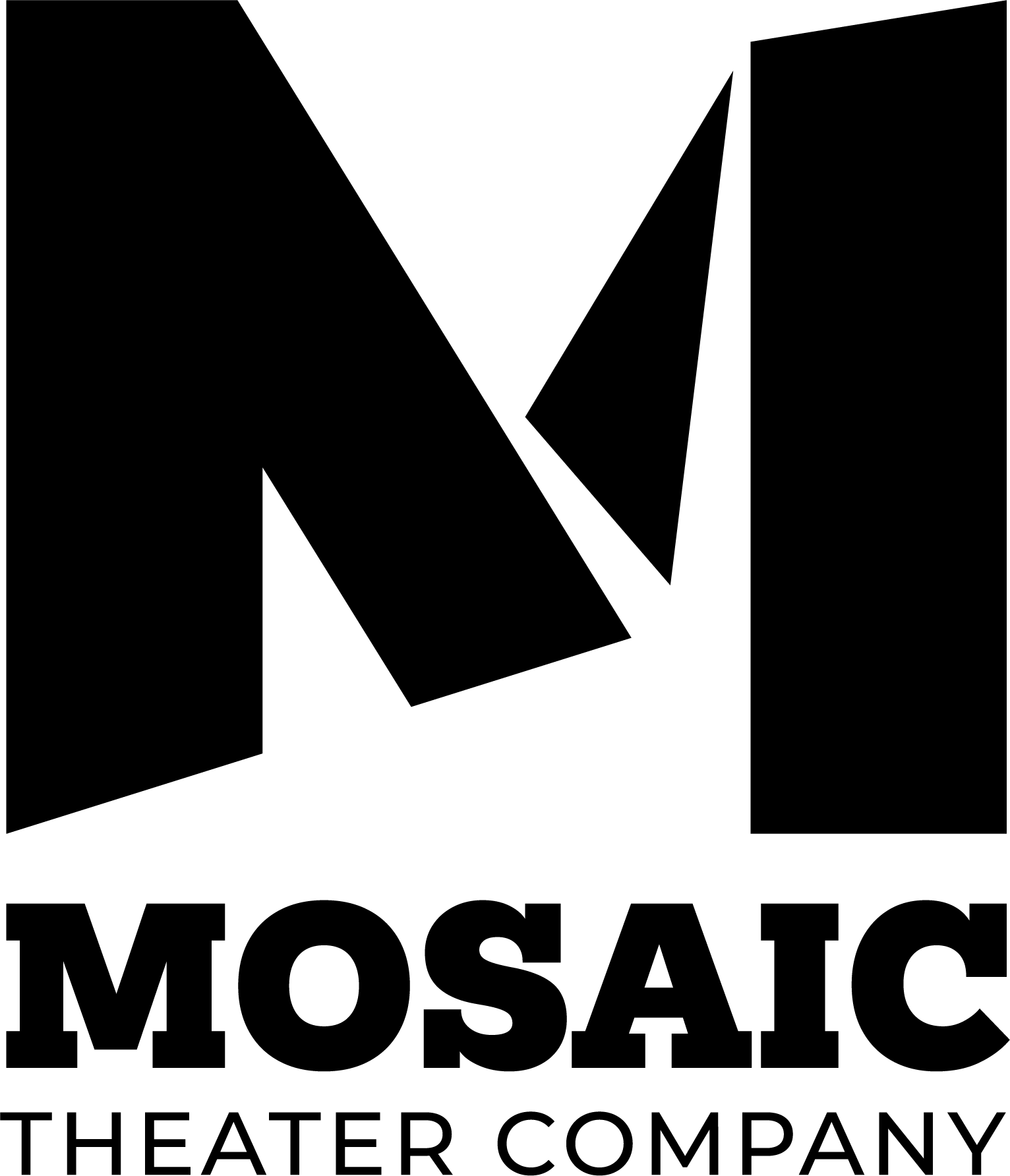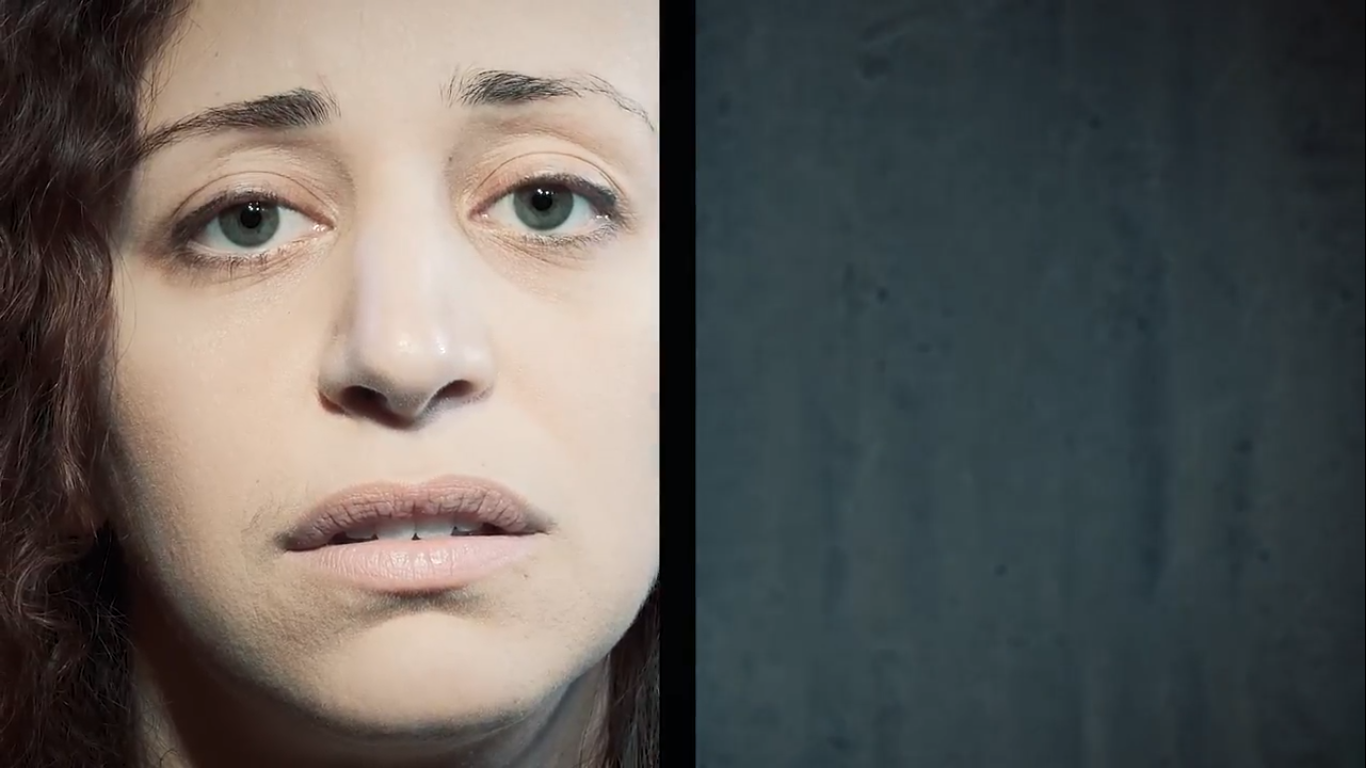A Face Behind the Mosaic: Dina Soltan
In anticipation of our upcoming production, Keffiyeh/Made in China by Dalia Taha, Mosaic sat down with one of the actors, Dina Soltan, to get her take on the production as well as our local theater scene. Dina Soltan wears a lot of hats in the DC arts community. She is the Donor Relations Associate at Mosaic Theater Company of DC; a freelance actor whose work has been seen at Ally Theatre Company, Rorschach Theatre, Reston Theater, and Theatre Prometheus; and, she recently stepped up as a Producing Partner with the beloved Arlington theater, Avant Bard.
See her work in Keffiyeh/Made in China, Episode 1 premiering May 11, 2021.
Keffiyeh is included with the purchase of a 21/22 Membership.
Alternatively, an independent Subscription for all 7 episodes is available.
Actor Dina Soltan
Mosaic. Thank you so much for taking the time to talk with us. How have rehearsals for Keffiyeh/Made in China been?
Dina. Rehearsals have been such a cool insight into people’s creative processes. And, oh my gosh, working with Adam [Kassim] is absolutely incredible. Even though this episodic theater-film hybrid is something completely new to us, he still brings this enthusiasm to all of his ideas.
Mosaic. I’m excited to see Keffiyeh as a video because on the page the script is so gripping. And I think the vignette format will lend itself to an episodic release.
Dina. I think so too. And the script is so abstract and experimental that it’s kind of like taking a blank page and you can interpret it however you like. It’s definitely an “actor - director” script, because it’s so open to interpretation and it was really all up to who was in the room at that specific time.
Mosaic. How was the rehearsal process organized to support that openness to interpretation?
Dina. We rehearsed first on Zoom. And those Zoom rehearsals were helpful in finding out what we were actually saying, instead of why we’re saying it. Because the script is so non-prescriptive. And when we transferred into the room everything clicked and you found meaning in lines that you hadn’t really seen before. But because there was that base, a foundation, that was built beforehand it allowed me to explore a little bit more.
Mosaic. So how long had you been away from The Atlas before coming in to work on this show?
Dina. A full year, and it’s so funny because it was almost like a full year to the day. It was surreal, really strange. It took me a couple hours to just really wrap my head around the fact that I’m back in a theatrical space. Before this past year, I spent almost every day in a theatrical, creative space. I wish more of the staff could have been there, it was a really nice reminder of why we’re doing what we’re doing.
Actors Fargo Tbahki and Dina Soltan,
Production Design Mona Kasra
Mosaic. When did you first come into contact with this play? We did a staff reading at the end of 2020, were you familiar with the play before then?
Dina. Originally, it was going to be a part of our Voices From A Changing Middle East Festival, and I was asked to take on the festival’s programming. My starting point and something that I’m very passionate about is giving voice to those who are underrepresented and who are oppressed. And so, I was like, “okay, there’s a clear topic here that the theatre isn’t talking about in its fullness: Israeli-Palestinian conflict,” and I know that in the past this topic has been addressed on surface levels, but in looking through the shows we’ve produced, we found a pattern that was not so great. The pattern was that a lot of the Palestinian plays were either directed by Israelis or white Americans and/or the casts didn’t really represent the ethnicity at all. And that was something I wanted to change; to have Palestinians have their own voice without it being said through Israeli lens.
So, Chelsea and I came across, Inside/Outside: Six Plays From the Palestinian Diaspora. And looking through this book I came across Keffiyeh/Made in China by Dalia Taha, keeping in mind that we are going through Covid and we needed plays that didn’t require a ton of actors being in the same place at the same time. I came across this play and it was like a lightbulb. Vignettes, two character scenes, a good fit for episodic release, each scene is its own little world but also in a world together. And with this play, we would be able to represent and uplift the Arab community and the acting community in DC and create opportunities for them.
Mosaic. Alright, so you also work at another theater called Avant Bard, can you tell us a little bit about that theater and the radical structural shift that you helped support?
Dina. Yes! I joined Avant Bard as a producing partner a couple months back. My role there is part of the five-person leadership team. After the former artistic director, Tom Pruitt, unfortunately passed away, the board was pretty much set on just shutting the theater down, - which would have been such a tragedy because Avant Bard has been around in the Arlington area for 30 years. So I got a call from Sarah Barker, one of the company members, and she was like “hey, I want to get a team together to save and to rebuild Avant Bard.” And we gathered a leadership team where each person has a different skill set and started creating our new mission. We’re pretty set on having it be a community-based theater, so we’ll do shows from the Latinx community, maybe represent different foods from all over the world, poetry readings, music, script readings, and of course full-on productions. And given the name Avant Bard, it is somewhat important that we present classical works with a new twist. So, we still plan to hold onto the foundation of Avant Bard’s mission, but add new things to make it more empowering to the community. We’ve been figuring out what Avant Bard is going to do next and how to raise the money to do it. And build a nice community and support system so the theater can continue to flourish and continue to bring the community of Arlington together.
Actors Dina Soltan and Fargo Tbakhi
Mosaic. Looking at the next 3 to 5 years, what is one hope you have for Mosaic and one hope you have for Avant Bard?
Dina. One hope I have for Mosaic is to continue to be an international hub for new works from all over the world. Representing new voices and new cultures, giving voice to those who usually are voiceless or don’t have enough representation in the theater world. And I think we are heading in that direction. I’m absolutely loving the plays we have up for debate for seasons 7, 8, and beyond. They would allow us to truly live up to our name of Mosaic, a mosaic of different cultures and perspectives. It’s so important for creating empathy and having a window into a culture that you might not know.
Mosaic. And for Avant Bard?
Dina. For Avant Bard, my hope is that we can really make a name for ourselves in Arlington as not just a theatrical space but as a space for the community to come together over any number of things. I think Avant Bard has the opportunity to really create a communal space that everyone can feel that they are a part of the community and to be proud of living in Arlington. Community based for Avant Bard and an international mosaic of voices for Mosaic.
Mosaic. I love how those dreams have completely different scopes but their core, the seed of both of those ideas is very similar.
Dina. Ya, I would say so.
Mosaic. Thank you so much, it’s been great getting to catch up.



